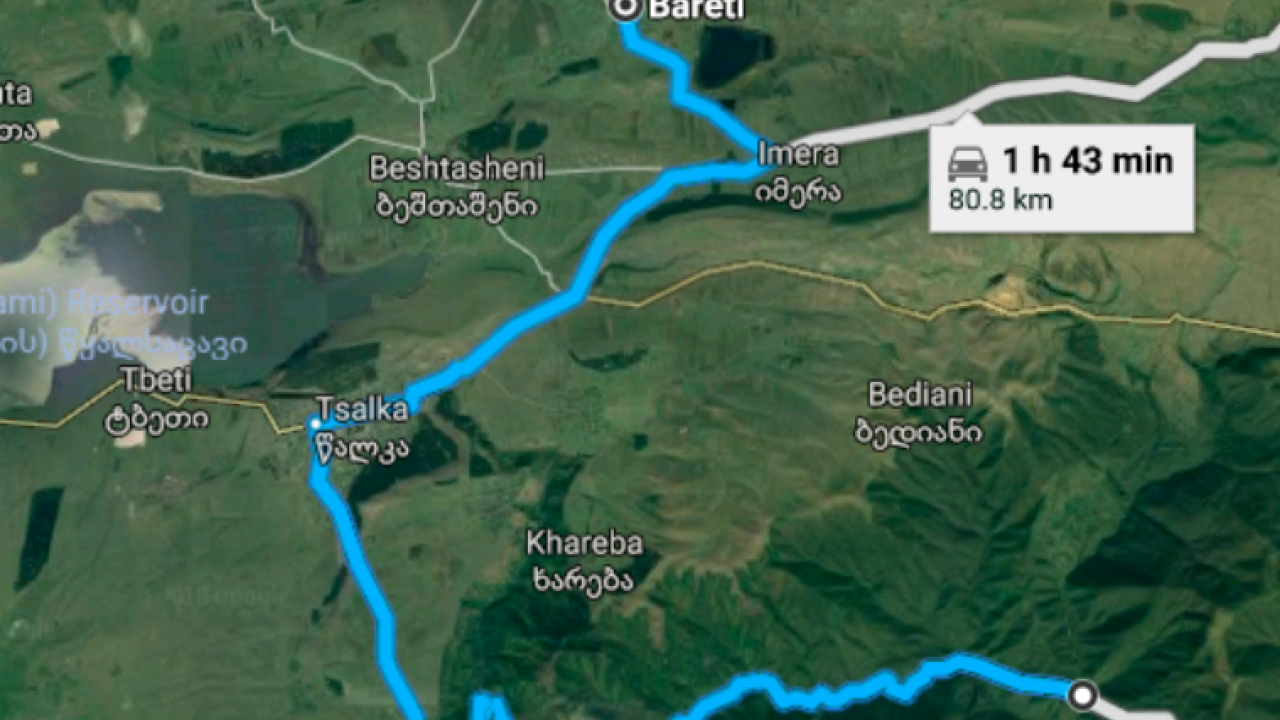
The Daily Trek (Georgia)
Summer 2018
8:00am: wake up, get ready for the day.
9:00am: the agreed upon departure time - wait outside of the common house.
10:00am: call from Nino, Zviad’s wife, summoning me to her house for breakfast.
11:00am: finish breakfast, wait outside of the common house.
12:00pm: Zviad drives his car to the common house, we all pile in and begin the daily trek.
2:00pm: arrive at Zviad’s restaurant in Tsalka.
4:00pm: drive from Tsalka to Bareti.
4:30pm: conduct interviews.
10:00pm: drive from Bareti to Tsalka.
11:00pm: drive from Tsalka to Bediani.
1:00am: arrive in Bediani.
There are two main things I learned from traveling in Georgia are that things have a different procedure than US, and that I had absentmindedly taken roads for granted in the US.
Georgian lifestyle is much slower than what seems to be the American lifestyle. In the US, everything is about efficiency and speed. We are constantly attempting to make things and processes faster. The first day we were scheduled to leave for Bareti at 9 in the morning, I arrived at the common house promptly at 8:55am. About 30 minutes later, I was greeted by one of the BCC volunteers with a laugh, “silly American,” he said, “Don’t you know that Georgians are always late?” I told him that I had been warned but that I am Type A and I like to be early and organized. He asked what Type A was and I explained the difference between character traits that we classify as “Type A” and “Type B” to which he responded that “everyone in Georgia is what you would call Type B”. At first I was frustrated with the disorganization and lateness of activities in Georgia, but I came to appreciate the more relaxed lifestyle. You may not accomplish as much in the day than is possible, but you enjoyed your time and did not worry about deadlines or lateness.
Bareti is the community of focus for the agricultural needs and capacity assessment as well as where we will be conducting sustainable agriculture workshops. Bareti is about 26 miles from where we are staying, in Bediani. This is less than the distance from Davis to Elk Grove. The difference is that to drive from Davis to Elk Grove takes about 40 minutes, the drive from Bediani to Bareti takes over 2 hours.
I realize that I absentmindedly took roads for granted in the US before coming here. Back home, roads that are in poor condition are eventually torn up and re-paved. In rural Georgia, they either are not paved in the first place, or if they are paved, there is no upkeep so there are only patches of pavement (Figures 2 and 3). In a clear position of privilege, I was shocked at the road conditions when we entered Bareti for the first time. Not only were the roads not paved, but they lacked the basic upkeep to prevent erosion and pothole formation. It was clear that though Tbilisi roads are not in ideal conditions, the small villages and surrounding roads were not a priority for road maintenance in the eyes of the government.
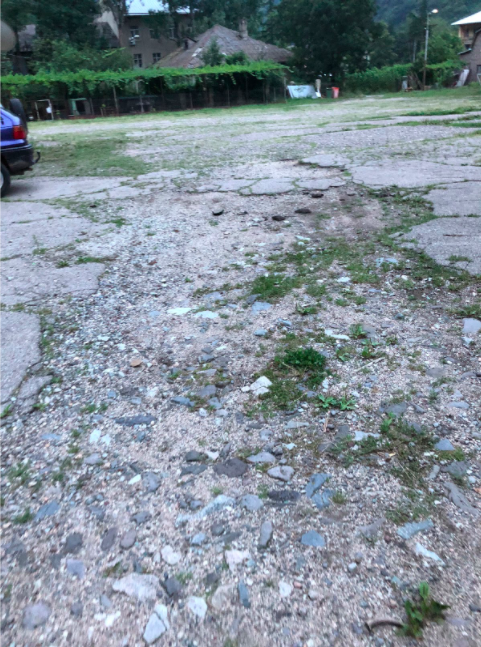
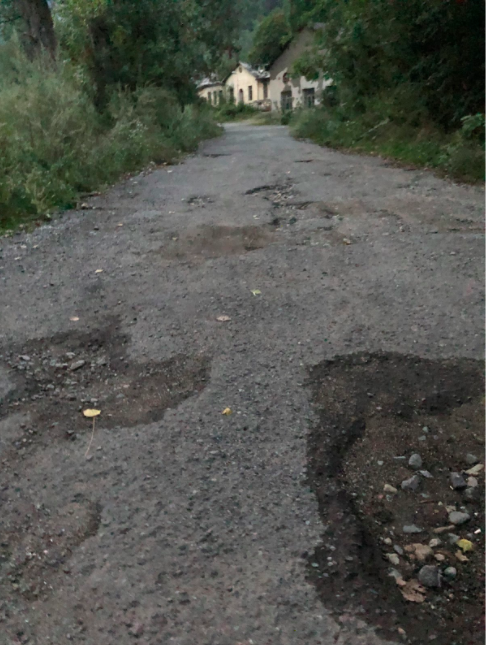
The first few days of my stay in Bediani, the training center was being used for a children’s art camp to generate additional revenue for the children’s center. These kids were from Tblisi, the capital city (about an hour and a half drive from Bediani). I asked when their parents were going to come pick them up, and upon hearing their response, I realized my position of privilege. The governor of Bediani, Zviad Khapava, explained to me that the only way BCC could facilitate a camp was to pay for a shuttle to drive the children to and from Bediani because their parents refused to drive the bad roads. This was a common problem for Bediani - relatives, tourists, and others are hesitant to drive to the village because of poor road conditions. In combination with the geographical location which is out of the way to any large city or attraction, the road conditions hinder the village from making any revenue from the tourist industry.
Bareti roads were in worse shape. Farmers expressed their inability to drive goods for sale during the winter when the rain and snow paired with the poor road conditions made it nearly impossible to drive in or out of the village. Even during the summer, spring, and fall frequent rains made it difficult to access the village. This also posed medical and safety concerns. A rainstorm was in process as we journeyed to Bareti from Bediani one day. To my disbelief, the heavy rain washed away the top layer of the road away and rivers formed on the road eroding large cracks into the road. My Georgian counterparts seemed unphased by this. Nothing was being done to preserve the integrity of these roads. Conditions worsened with each rain yet this is their reality. The government has too much on their agenda and too little funding to accomplish low priority tasks.
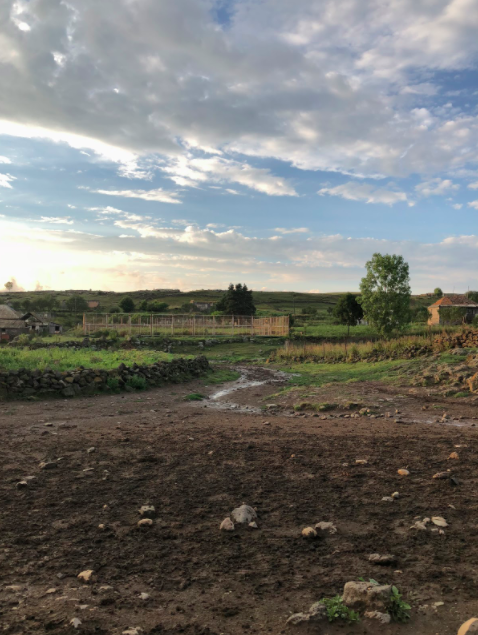
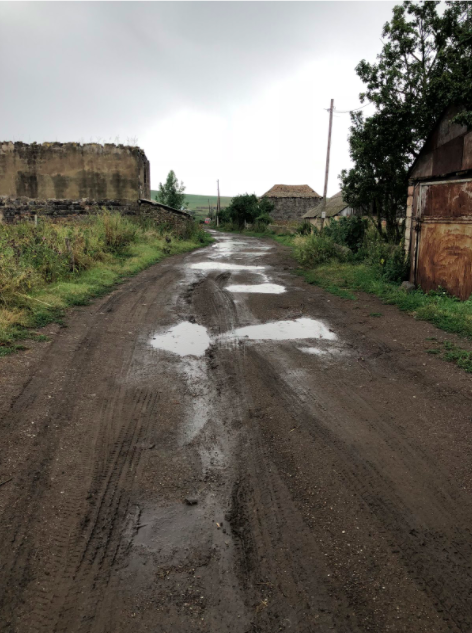
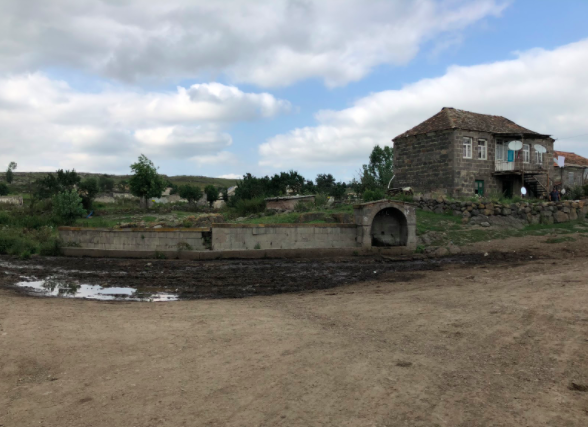
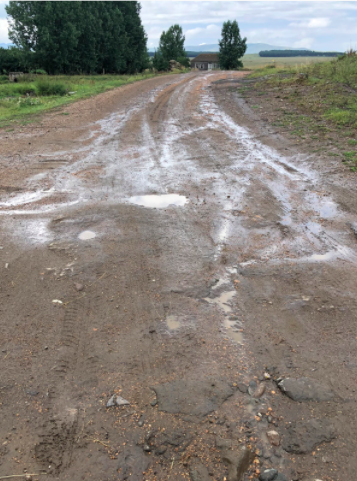
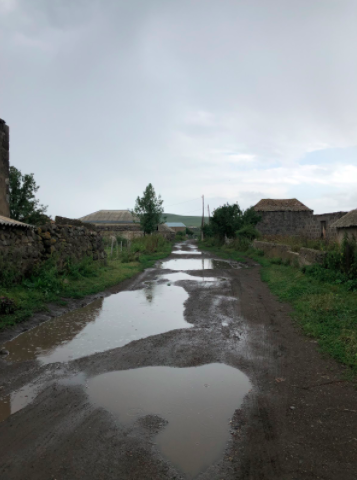
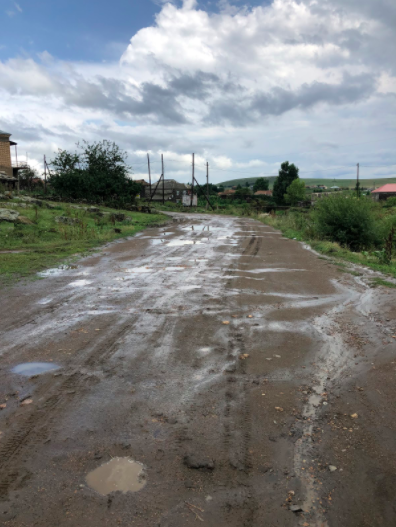
Written by Abigail Edwards
